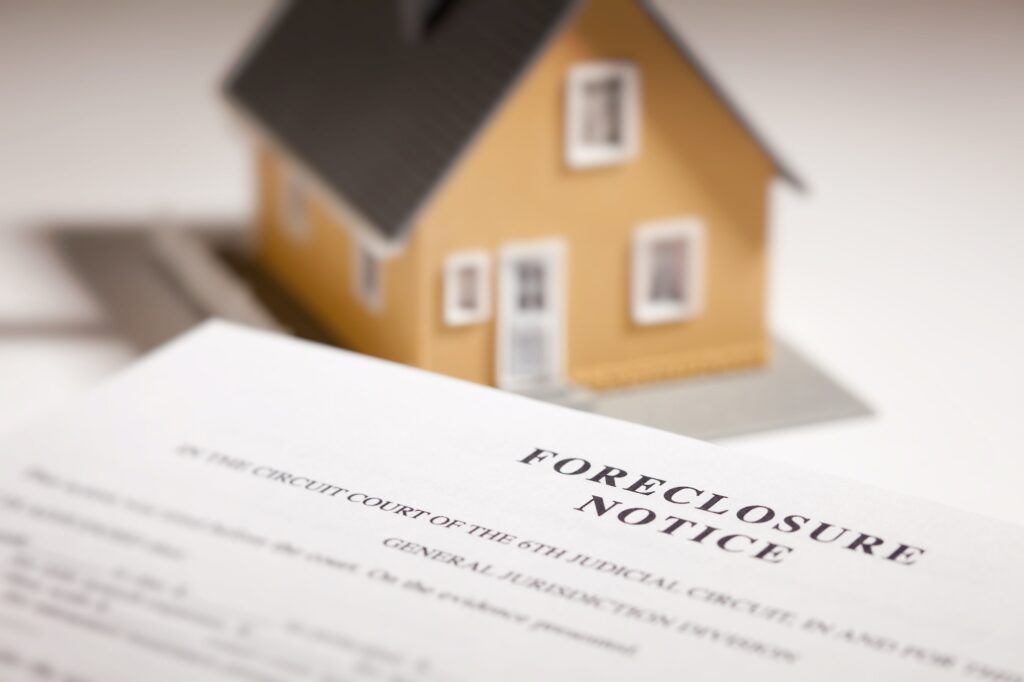Foreclosure is a term that describes the legal process of a bank or other lender repossessing a mortgaged property because the borrower has defaulted on their loan. Foreclosure has been a difficult situation for many homeowners in recent years and it can leave people feeling helpless, embarrassed, and unsure of where to turn for help. While the foreclosure process itself is complex, the effects of it on homeowners and the secrets that a foreclosed residence holds can be even more daunting. This article will explore some of the hidden secrets of foreclosed residences and ways to help homeowners mitigate the damage of foreclosure and move forward.
Effects of Foreclosure on Homeowners
One of the biggest secrets of foreclosed homes is the effect they have on homeowners. Foreclosure can cause a great deal of emotional and financial distress on the homeowner. When a homeowner is unable to make their mortgage payments, they are often met with a barrage of phone calls, letters, and scrutiny from their lender. This can be disheartening and discouraging for the homeowner who is simply trying to get back on their feet. Additionally, the foreclosure process itself can be daunting, as it involves a thorough review of the homeowner’s financial records, background checks, appraisals, and other technical elements.
When a homeowner goes through the foreclosure process, their credit score is also impacted. This means that when they do eventually try to purchase a new home, they will be dealing with a much higher interest rate or fees than people with a better credit history. This can make it difficult for those who have recently gone through foreclosure to get back into the housing market.
It is also important to remember that the effects of foreclosure can last for many years. For example, a foreclosure can remain on an individual’s credit report for up to seven years. Furthermore, the former homeowner will have to wait at least three to five years after the foreclosure is finalized before they can be considered for an FHA loan. From an emotional and financial standpoint, foreclosure can be a devastating ordeal.
Financial Obligations and Realtor Liability
Another secret of foreclosed homes is the financial obligations the former homeowner can still be held liable for after the foreclosure. When a homeowner goes through the foreclosure process, they are typically responsible for any unpaid loan balance, legal fees, and other associated costs incurred during the process.
It’s important to note that the realtor involved in the sale of the property can also be held accountable for any financial losses. If a realtor misrepresents the property or fails to disclose important information, they can be held liable for any losses the buyer incurs. For this reason, it is always important to do your research and make sure you’re dealing with a reputable and knowledgeable realtor before agreeing to purchase a foreclosed home.
In addition, the former homeowner should be aware of the financial obligations they may have to pay to the former lender. Even after the foreclosure is finalized, the former homeowner may be held accountable for any unpaid taxes or assessments that were assessed against the property.
Environmental Hazards from Vacant Homes
Another secret of foreclosed homes is the potential for environmental hazards. When a residence is left vacant for an extended period of time, it can become a breeding ground for mold, mildew, and other toxins that can be harmful to the environment. Additionally, vacant homes can quickly become a target for thieves, squatters, rodents, and other pests.
The potential for environmental hazards and safety risks is yet another reason it is so important to work with a reputable realtor when purchasing a foreclosed home. Some realtors will even contract with environmental testing companies to test the home before it is bought to make sure it is safe to inhabit. Furthermore, a realtor should be prepared to provide any information regarding the provenance of the home and answer any questions homeowners may have about the property’s safety.
Negotiating with the Seller
Finally, negotiating with the seller of a foreclosed home is a secret that many prospective buyers fail to consider. While the foreclosure process can be a difficult and emotional time, it is also an opportunity for buyers to get a better deal on the home. In most cases, the lender will be willing to negotiate on the price of the home, as well as the terms of the loan, in order to make the sale.
It is important to remember that the foreclosure process and negotiations can be tricky and complicated. Therefore, it is always in your best interest to hire a realtor who is experienced in these matters to help you through the process. This can ensure that you get the best deal possible on your purchase.
Final Thought
Foreclosed residences can hold many secrets, but with the right help and preparation homeowners can take steps to ensure that the foreclosure process does minimal damage to their financial and emotional wellbeing. Additionally, knowledgeable realtors who are aware of the potential environmental hazards and financial obligations that often accompany a foreclosed home can be a valuable asset in the negotiation process. By understanding the secrets of foreclosed homes, homeowners can have greater peace of mind as they look to purchase a new home and start fresh.

